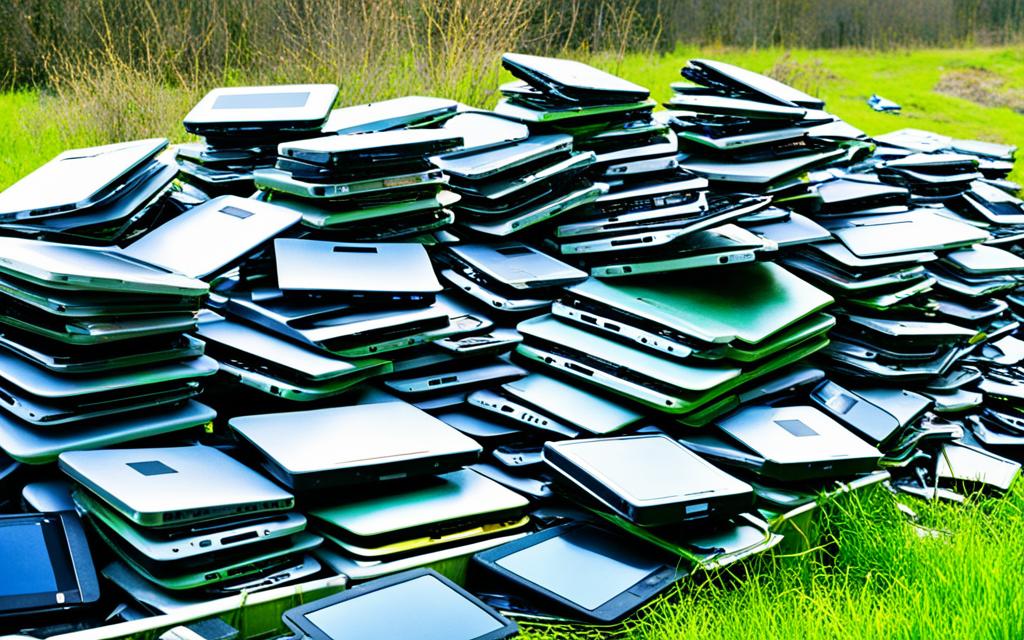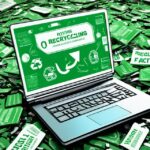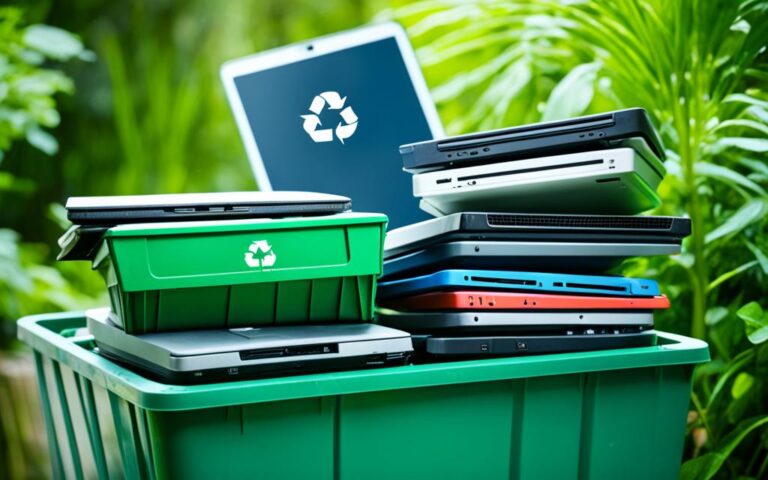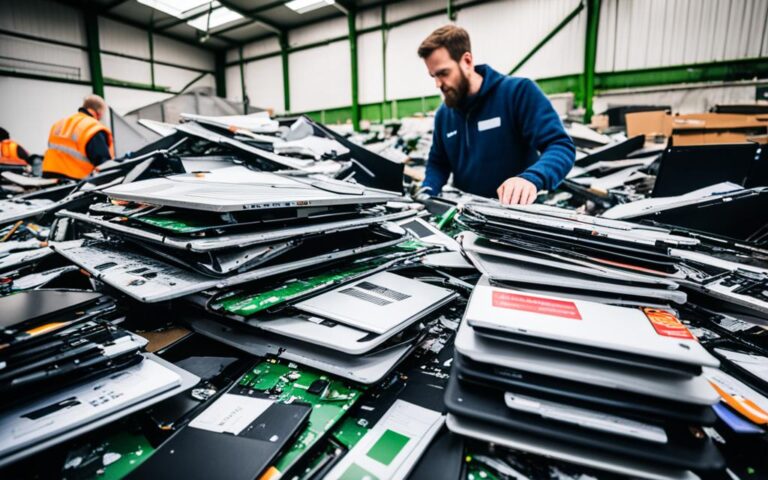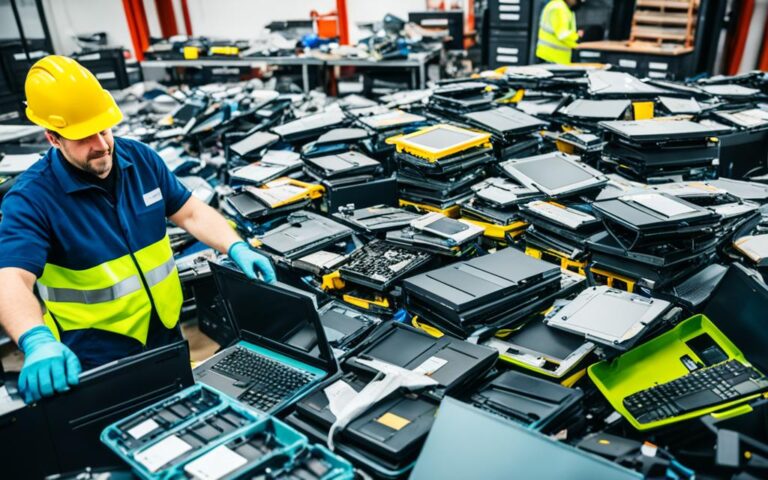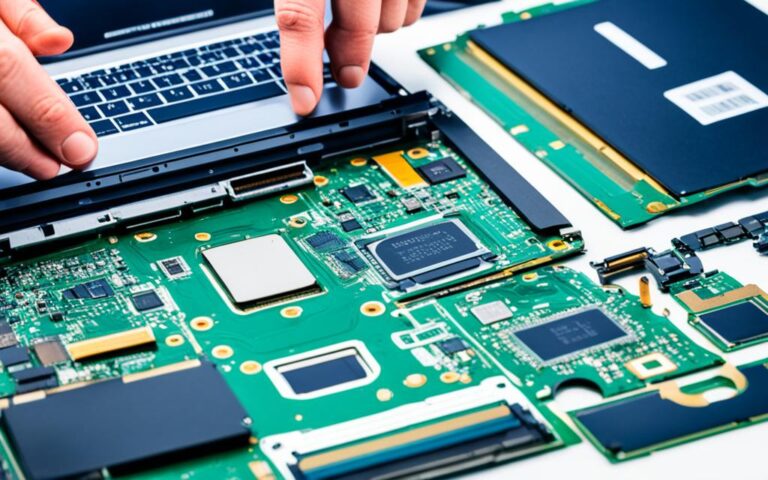The Role of Laptop Recycling in Enhancing Corporate Image
As technology continues to advance, older electronic devices become obsolete, leading to a significant increase in electronic waste or e-waste. This waste poses environmental and health risks due to the toxic materials it contains. IT recycling plays a crucial role in addressing this problem by responsibly disposing of electronic devices. It not only reduces the amount of e-waste ending up in landfills but also demonstrates a company’s commitment to environmental sustainability.
When businesses prioritize laptop recycling, they project a positive corporate image that resonates with modern consumers. As more individuals seek environmentally conscious brands, showcasing sustainable practices has become imperative for organizations. By actively participating in laptop recycling initiatives, businesses can align themselves with eco-friendly values, bolster their corporate image, and generate goodwill among customers, partners, and stakeholders.
The Environmental Impact of E-Waste
E-waste, also known as electronic waste, is the fastest-growing waste stream globally, with millions of tons generated annually. This waste comprises discarded electronic devices that contain hazardous materials such as lead, mercury, and cadmium. When not properly disposed of, these materials can contaminate the environment and pose significant risks to ecosystems and human health.
In order to address the environmental impact of e-waste, businesses have a crucial role to play. One effective solution is laptop recycling, which allows organizations to minimize the negative effects of e-waste and contribute to the protection of the planet. By recycling electronic devices, businesses can reduce the overall amount of e-waste ending up in landfills. Proper recycling ensures the safe handling and disposal of hazardous materials, preventing their release into the environment.
“Proper e-waste recycling not only helps to protect the environment but also fosters a culture of sustainability. By recycling laptops and other electronic devices, businesses can take an active role in reducing pollution and conserving valuable resources.” – Alex Johnson, Environmental Specialist
Moreover, laptop recycling offers the opportunity to recover valuable materials and components from discarded devices. This process reduces the need for new resources and helps conserve energy and raw materials. By participating in laptop recycling, businesses can contribute to the circular economy and promote a more sustainable future.
The Environmental Impact of Improper E-Waste Disposal
When electronic devices end up in landfills or are incinerated, the hazardous materials they contain can leach into the soil and water, leading to contamination. This contamination can have adverse effects on ecosystems, including damage to plant and animal life. Moreover, the release of toxic substances from e-waste can contaminate the air, contributing to air pollution and impacting human health.
The improper disposal of e-waste also leads to missed opportunities for resource recovery. Valuable metals and materials such as gold, silver, and copper can be extracted from electronic devices through recycling processes, reducing the need for mining and decreasing the associated environmental impacts.
Protecting the Planet through Laptop Recycling
Laptop recycling is a proactive solution to mitigate the environmental impact of e-waste. By embracing responsible recycling practices, businesses not only safeguard the environment but also contribute to a more sustainable and circular economy. Implementing laptop recycling initiatives can help reduce greenhouse gas emissions, conserve natural resources, and minimize energy consumption.
In addition to its positive environmental impact, laptop recycling also aligns with corporate sustainability goals and can enhance a company’s reputation as an environmentally conscious organization. Consumers and stakeholders increasingly value businesses that prioritize environmental responsibility, making laptop recycling an essential practice for any company looking to strengthen its corporate image.
Benefits of IT Recycling for Businesses
IT recycling offers several benefits for businesses. Firstly, it demonstrates environmental responsibility and helps reduce their carbon footprint. Secondly, it can lead to cost savings by reusing or repurposing devices and components. Thirdly, proper IT recycling practices include secure data destruction, ensuring that sensitive business information is not compromised. Additionally, engaging in IT recycling helps businesses comply with laws and regulations governing the disposal of electronic waste. Lastly, embracing sustainable practices such as IT recycling can enhance a company’s brand image and attract environmentally conscious customers and partners.
By participating in IT recycling, businesses can actively contribute to the preservation of the environment. It showcases their commitment to reducing electronic waste and minimizing the adverse effects on the planet. Furthermore, the act of recycling not only helps reduce a company’s carbon footprint but also conserves valuable resources. By reusing or repurposing devices and components, businesses can significantly cut down on production costs, saving money in the process.
Secure data destruction is another crucial aspect of proper IT recycling practices. When disposing of electronic devices, businesses must ensure that sensitive business information remains protected. By partnering with reputable IT recycling companies, businesses can guarantee the secure destruction of data, mitigating the risk of data breaches and maintaining customer trust.
Engaging in IT recycling also allows businesses to comply with legal requirements surrounding electronic waste disposal. Many countries have strict regulations in place to govern the proper handling and disposal of electronic waste. By adhering to these laws, businesses can avoid legal consequences and contribute to a safer and more sustainable waste management system.
Embracing sustainable practices such as IT recycling can be a powerful marketing tool for businesses. Companies that prioritize environmental responsibility and take proactive steps towards sustainability often attract environmentally conscious customers and partners. By actively promoting their commitment to IT recycling, businesses can enhance their brand image and position themselves as leaders in corporate social responsibility.
Benefits of IT Recycling for Businesses:
| Benefits | Description |
|---|---|
| Environmental Responsibility | Reduces carbon footprint and demonstrates commitment to sustainability. |
| Cost Savings | Reuses or repurposes devices and components, leading to financial savings. |
| Secure Data Destruction | Ensures sensitive business information is not compromised during disposal. |
| Compliance with Laws and Regulations | Ensures adherence to legal requirements for electronic waste disposal. |
| Enhanced Brand Image | Attracts environmentally conscious customers and partners. |
Developing an IT Asset Management Plan
Developing an IT asset management plan is essential for businesses seeking to implement responsible and sustainable practices. This plan serves as a roadmap for effectively managing and disposing of electronic devices, ensuring compliance with regulations and minimizing environmental impact. By incorporating recycling guidelines into their asset management plan, businesses can establish a systematic approach to IT asset management and ensure the proper disposal and recycling of electronic devices.
To develop an effective IT asset management plan, businesses should consider the following key elements:
- Inventory of all IT assets: Start by conducting a comprehensive inventory of all the company’s IT assets, including laptops, desktops, servers, and other electronic devices. This inventory will serve as the foundation for managing the entire lifecycle of these assets.
- Criteria for determining end-of-life devices: Establish clear criteria for determining when an IT asset has reached its end-of-life and needs to be decommissioned. This could include factors such as age, performance, compatibility, and business requirements.
- Step-by-step procedures for disposal: Define step-by-step procedures for the disposal of IT assets, including proper data wiping or destruction to ensure data security. This should also involve identifying authorized recycling partners or facilities to handle the disposal of electronic waste.
- Strategies for waste reduction and reuse: Implement strategies to reduce waste and maximize reuse opportunities within the organization. This may involve refurbishing or repurposing older devices, promoting internal device recycling programs, or exploring donation options to support local charities or non-profit organizations.
By incorporating these elements into their IT asset management plan, businesses can establish a structured and sustainable approach to managing their electronic devices. This not only helps protect the environment but also enhances corporate responsibility and contributes to a positive brand image.
“The responsible management of IT assets is vital for businesses to minimize waste generation and environmental impact. By developing a comprehensive IT asset management plan that incorporates recycling guidelines, companies can efficiently dispose of electronic devices while promoting sustainability and corporate social responsibility.”
Working with Recycling Your IT
Recycling Your IT is an IT recycling company that provides comprehensive IT recycling services, catering to the needs of businesses across various industries. By partnering with Recycling Your IT, businesses can take advantage of the numerous benefits they offer.
One of the key advantages of working with Recycling Your IT is their commitment to compliance with all current laws and regulations governing the recycling industry and IT waste. They adhere to strict guidelines and ensure that all electronic devices are disposed of responsibly and ethically.
Recycling Your IT’s services encompass secure data erasure or destruction, safeguarding sensitive information from unauthorized access or breaches. They employ industry-leading techniques and tools to guarantee the complete and irreversible removal of data, providing businesses with peace of mind.
As an environmentally conscious company, Recycling Your IT prioritizes sustainable practices to minimize waste and maximize recycling efforts. They strive to reduce overall waste and recover valuable materials from electronic devices, contributing to the circular economy and minimizing the environmental impact of e-waste.
Partnering with Recycling Your IT enables businesses to ensure secure and responsible disposal of their electronic devices, promoting sustainability and aligning with corporate social responsibility initiatives. By choosing Recycling Your IT as their IT recycling service provider, businesses can enjoy professional, reliable, and eco-friendly solutions.
Conclusion
Laptop recycling is an essential practice for businesses looking to enhance their corporate image. By actively participating in IT recycling, companies can demonstrate their commitment to environmental sustainability, reducing their carbon footprint, and minimizing electronic waste. Not only does this contribute to a cleaner and greener future, but it also showcases responsible business practices.
Moreover, laptop recycling offers cost-saving opportunities for businesses. By reusing or repurposing devices and components, organizations can reduce their expenses on new equipment. Additionally, proper IT recycling practices include secure data destruction, ensuring that sensitive business information remains protected and confidential.
Developing an effective IT asset management plan is key for businesses seeking to implement responsible practices. This plan should include recycling guidelines, enabling the proper disposal and recycling of electronic devices. By incorporating these guidelines into their asset management approach, companies can ensure compliance with laws and regulations governing e-waste disposal.
Partnering with a reputable IT recycling company such as Recycling Your IT strengthens businesses’ efforts towards secure and environmentally conscious disposal. These companies prioritize the reduction of waste and the recycling of valuable materials, ensuring that electronic devices are managed following the highest industry standards. By embracing laptop recycling and working with trusted recycling partners, businesses can continue to improve their corporate image, protect the environment, and contribute to a more sustainable future.
FAQ
What is the role of laptop recycling in enhancing corporate image?
Laptop recycling allows businesses to demonstrate their commitment to environmental sustainability, reduce costs, ensure data security, comply with laws and regulations, and enhance their brand image.
What are the environmental impacts of e-waste?
E-waste, which consists of discarded electronic devices containing hazardous materials, poses risks to ecosystems and human health when not properly disposed of. It contaminates the environment and releases toxins such as lead, mercury, and cadmium.
What are the benefits of IT recycling for businesses?
IT recycling demonstrates environmental responsibility, reduces carbon footprint, leads to cost savings through reusing or repurposing devices, ensures secure data destruction, helps businesses comply with laws and regulations, and enhances their brand image.
How can businesses develop an IT asset management plan?
Businesses can develop an IT asset management plan by creating an inventory of all IT assets, defining criteria for end-of-life devices, establishing step-by-step procedures for disposal, and implementing strategies for waste reduction, reuse, and recycling.
What are the services offered by Recycling Your IT?
Recycling Your IT offers secure data erasure or destruction, ensuring sensitive information is protected. They also prioritize environmentally responsible practices and aim to reduce overall waste while recycling valuable materials.
How does laptop recycling contribute to a cleaner and greener future?
Laptop recycling reduces electronic waste ending up in landfills, minimizes environmental impacts, and contributes to the protection of the planet by responsibly disposing of electronic devices.

